Environment
We will contribute to the achievement of a carbon neutral society by actively working to reduce food waste and CO₂ emissions etc.
In addition, we will promote initiatives such as local production for local consumption and the use of sustainable foods with the aim of coexisting and co-prospering with food producers.
Examples of Our Activities
Reduction of food waste
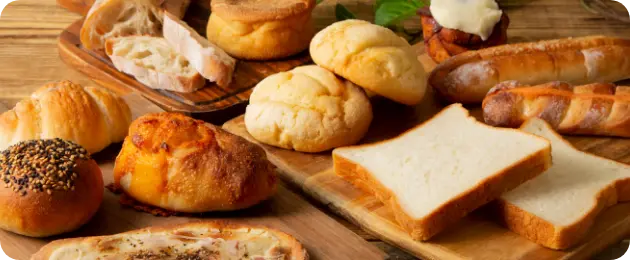
-
Act 01
Bakery & Cafe “JEAN FRANÇOIS”, Bakery “Saint Germain” and “L’air bon” Introduce Food Sharing App “TABETE”.
⇒ Initiatives to reduce lost bread at stores
-
Act 02
Sells unsold breads nationwide through "rebake" website.
-
Act 03
Introducing “mottECO” at Icchou
⇒ Customers purchase special to-go containers and fill them with uneaten food to take home.
Initiatives to encourage customers to take home leftover food● The industry-government-academia alliance “mottECO Dissemination Consortium*1 in which Icchou Inc. participates has been adopted as a ’Model Project for Introducing Food Loss Reduction Measures in Food Consumption Behavior in FY2023” by the Ministry of the Environment. (Period: May 31, 2024 - December 27, 2024)
※1: An industry-government-academia alliance for the purpose of promoting food loss reduction, consisting of 21 organizations including 8 food service companies, 8 hotel companies, 1 ready-made meal business company, 2 local governments, and 2 universities.
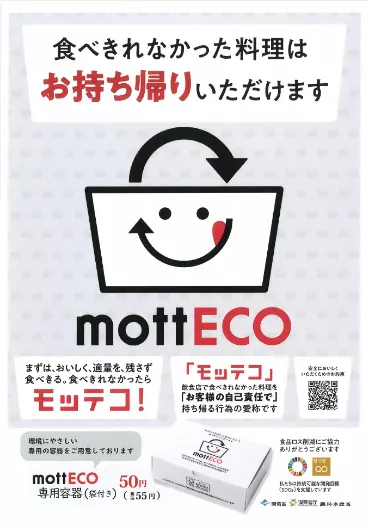
-
Act 04
Recycling of used oil (waste oil) (SFP Holdings Co., Ltd.)
-
Act 05
In addition to bulk purchasing in a central kitchen, strict control of purchasing and preparation (Icchou Inc.)
-
Act 06
Providing food scraps to a nearby zoo (Icchou Inc.)
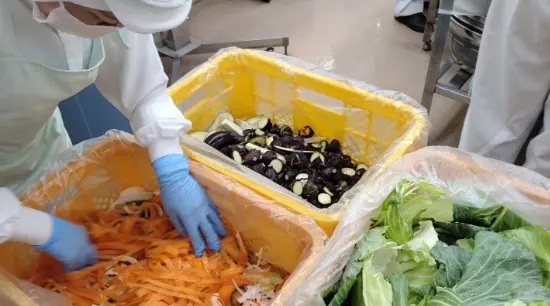
-
Act 07
Collaboration with farmers to utilize unsold ingredients.
-
Act 08
Cross utilization of ingredients among menus and stores.
Coexistence and
co-prosperity with
producing areas,
and Healthy food
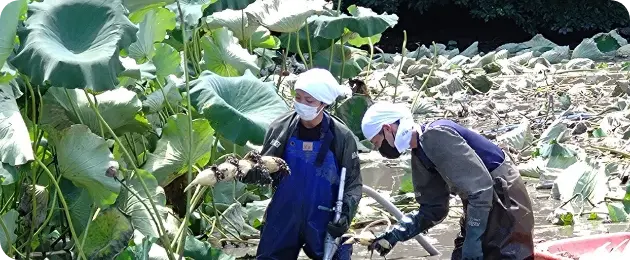
-
Act 01
Promotes local food production for local consumption and regional collaboration.
⇒ Helps to reduce transportation-related CO₂ emissions.
⇒ Develop local menus using vegetables from the area.
⇒ “EVERYONEs CAFÉ” uses ingredients produced in Tokyo as much as possible, including pork, fish, eggs, vegetables, and fresh herbs used in herb tea, under the concept of “Made in Tokyo” (Create Dining inc.)
⇒ Promote local production for local consumption within the group through a comprehensive business alliance with JA Zen-Noh (create restaurants inc.)
⇒ Introduction of “Rainforest Alliance Certified*2” coffee (several companies)
※2:Rainforest Alliance Certification is a comprehensive certification system to promote more sustainable agriculture, including forest protection, respect for workers' rights and livelihood improvement, and mitigation and adaptation to the climate crisis.
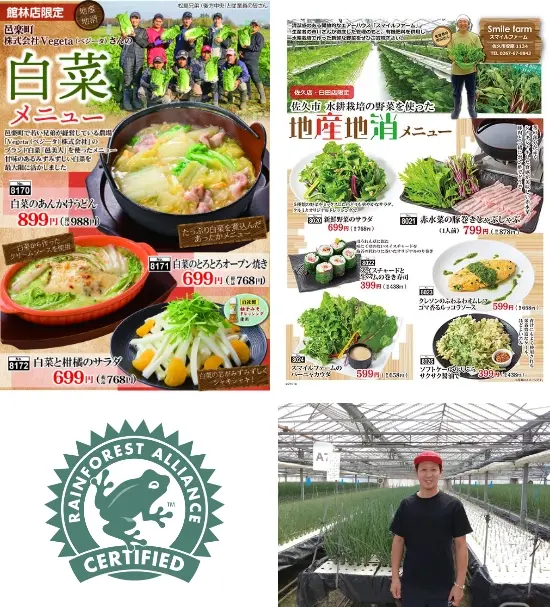
-
Act 02
Proactively implement exchanges with production areas and farmers at each Group company
⇒ Implemented agricultural experience training on the Miura Peninsula as “Hatake no Hi”, Days of the Field (Create Dining Inc.)
⇒ “MACCHA HOUSE”, Matcha-kan uses Matcha tea from the long-established Kyoto-based “Morihan”, and twice a year offers training programs that enable participants to experience Matcha through all five senses, such as picking tea at a tea farm in Uji, Kyoto, and observing the tea processing process at a tea factory (create restaurants inc.)
-
Act 03
Develops menu with sustainable foods such as plant-based cheese and soy meat.
-
Act 04
Introduces vegan menu and differentiated ingredients. (e.g., organic vegetables, organic coffee, locally produced products, etc.)
⇒ “Mr. FARMER Omotesando” operates as an all-vegan café, and is considering introducing it at other locations.
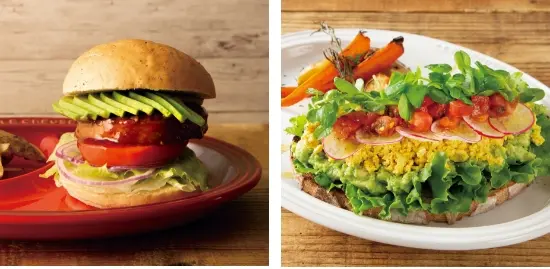
-
Act 05
Participation in the “Forest of Life Project” for environmental friendliness and sustainable food procurement
⇒ Participated in mangrove planting activities in Indonesia by purchasing environmentally friendly ingredients (shrimps) (Icchou Inc.)
Contribution to a
carbon-free society

-
Act 01
Continued introduction of LED lighting.
-
Act 02
Reduces plastic waste by using bioplastic bags and curbing the use of plastic straws.
-
Act 03
Use of wooden plates, muddler, chopsticks, etc., shift to non-plastic materials such as paper straws, biomass straws.
-
Act 04
In some stores, in-store serving containers were changed from plastic cups to glass containers.
-
Act 05
Changes to electric and gas contracts to enable CO₂ reduction.
-
Act 06
Utilizing the “gas cogeneration*3” system (e.g., “Kagonoya” and etc.)
※3:Gas cogeneration is a system that effectively utilizes the “waste heat” emitted when gas is used to generate heat as energy.
-
Act 07
Introduction of automatic timers or motion-activated sensors.
-
Act 08
Group-wide efforts to improve logistics efficiency
⇒ We have consolidated multiple warehouses within the group companies into a single warehouse in the Kansai and Kanto regions, and by implementing and expanding joint deliveries, we have reduced the number of deliveries by about 20% compared to the past.
-
Act 09
Acrylic panels used in the Covid to prevent splashing were remade and reused as key rings with the brand logo printed on them (YUZURU Inc.).
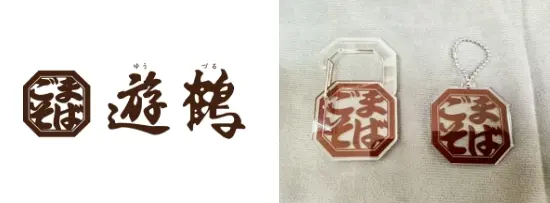
Efficient use of
water resource

-
Act 01
Use of faucet aerators and promotion of water conservation through tracking of water usage.
-
Act 02
Use of groundwater.



